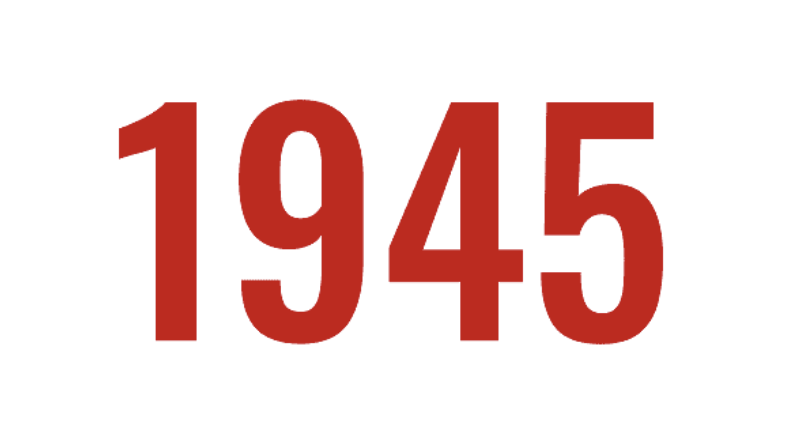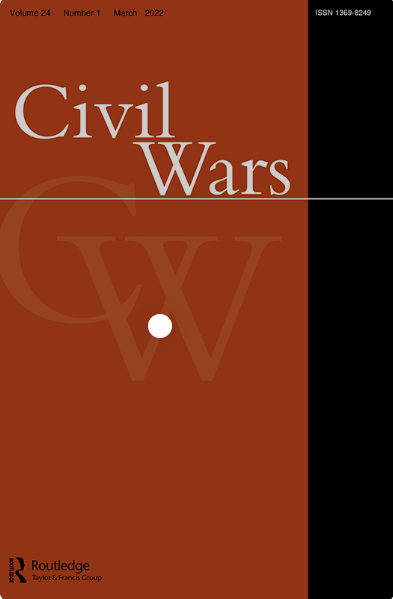https://www.19fortyfive.com/2023/01/putins-war-in-ukraine-is-brutal-it-looks-like-the-crimean-war/

As the Russian army struggles to hold on to the Crimean peninsula, we all ask where it is all leading. Most answers are mere speculation, for there are simply too many of what Donald Rumsfeld called “unknown unknowns.” But history may offer some insights. After all, this is not the first time Russia sought to hold onto those lands and the West mounted a military response. We’ve been there before. During the Crimean War of 1853-1856, Britain, France, and Ottoman Turkey confronted tsarist Russia over these same lands. Even though that war is scarcely remembered today, there are striking parallels between that conflict and the present. These earlier events can be divided into three phases.
First, in its nineteenth century war over Crimea, Russia suffered from an unbridgeable technological gap. Nicholas I decked out his troops in fancy uniforms and declared Russia’s army unbeatable, a claim supported by the memory of Russia’s victory over Napoleon earlier in the century. Nicholas hated Europe but was ignorant of its strengths. When a Moscow professor wrote that “We can expect nothing from the West but blind hatred and malice,” Nicholas reportedly wrote in the margin: “This is the whole point.” He was a deep-dyed expansionist, but Russia’s railroads were woefully inadequate, its telegraph system undeveloped, its field commanders had no spy balloons, and its soldiers lacked the percussion handguns with rifled barrels that were standard for the French and British forces.
Even though they were hopelessly outgunned and their generals outmaneuvered, Nicholas’ soldiers fought on, with a will that is absent among their counterparts today. Unlike Putin, Nicholas I was remorseful, yet his war dragged on for a year after the tsar’s death. This slow finale utterly discredited Russia’s military and the bribe-taking and corrupt officer corps that embodied it. Had Britain, France, and Ottoman Turkey struck a premature treaty with Russia, Nicholas’ tyranny would have survived and the old order would have remained intact.
Second, the humiliating defeat and Russia’s faltering economy gave rise to the threat of domestic unrest. Nicholas’ thirty-eight year old son, Alexander II, had no choice but to launch what became known as the “Epoch of Great Reforms.” Defending his remarkable programs, the young tsar declared that “It is better to abolish serfdom from above than to wait until it begins to abolish itself from below.” He and his like-minded staff set about instituting westernizing reforms in areas as diverse as the courts and judiciary, banking, local government, and the military itself.
The capstone of Alexander II’s reforms was the abolition of serfdom. This system had condemned ninety percent of Russia’s population to a fate akin to slavery. Emancipation gave peasants the use of land and kept peasant life intact but prevented them from migrating to the cities. For all the inadequacies of its reform, Russia managed to end serfdom two years before the United States emancipated its far less numerous slaves and without the estimated 750,000 deaths of the American Civil War.
Third, for all their prudence and, in some cases, brilliance, the Great Reforms did not last. Within a decade Russia succumbed once more to imperialist fantasies. The immediate cause of the breakdown of the nineteenth century reforms were Polish subjects of the tsar who wanted to enjoy the same rights as Russians. Alexander II had abolished serfdom in Poland but was not about to accede to the Poles’ demand for decentralization and self-government. Others of the tsar’s subject peoples decided that they, too, wanted to gain more control over their destinies. By the end of the nineteenth century calls for autonomy and self-government were heard from Finland to Central Asia. Alexander II’s successors down to the Revolution of 1917 responded with brutal clampdowns.
The Polish crisis not only left the Great Reforms dead or dying, but it unleashed a tide of Russian chauvinism that would lead to the breakup of the tsarist empire. After Alexander II was assassinated in 1881, he was succeeded by his son, Alexander III. Cultural and political imperialism, not decentralization and self-government, became the order of the day. In the end, the great cause of reform in tsarist Russia was defeated by the fantasy of a centralized and homogeneous empire. After 1917 Lenin and the Communists also embraced it, and used their newly formed Red Army to impose it on the populace.
TRAGIC REPLAY?
How significant are the similarities between the Crimean War of 1853-1855 and the present conflict in Ukraine? And what lessons can be drawn from Russia’s failure in its nineteenth century war in Crimea, from the Great Reforms, and from the country’s reversion to autocracy?
In both conflicts Russia was motivated by imperial ideology. And in both cases Britain and France teamed up, joined today by the active participation of the U.S. and other European states. In both cases the Turks opposed Russia. True, their involvement in the 1850s did not thwart the tsar in the Crimean theater itself. But today’s Turkish-made Bayraktar TB-2 drones have knocked out scores of Russian fighters, and their inventor, Selcuk Bayraktar, plans to erect a factory in Ukraine to build more.
Without Russia’s resounding defeat in 1855, it is inconceivable that the Era of Great Reforms would have followed. The same may be true today. To unleash a period of fundamental change, the same conditions that prevailed in 1856 must be present: the defeat of Russian forces in the field; the death of the tsar/leader and the discrediting of his advisors; and the fear of popular unrest within Russia itself. While Putin’s fate remains uncertain, all the other conditions are emerging today. And as in the 1850s, nothing would more surely derail future reforms in Russia or prolong the imperial ideology than for Putin somehow to survive his war, and for the core of his circle to remain intact. Russia’s defeat and the discrediting of its ideology are absolutely essential for Russia to come to its senses and launch reforms.
If and when that happens, Russia’s new reformers will need the West’s support and patience. What it certainly will not want will be ham-handed efforts to shape its reforms from abroad or to take advantage of its temporary weakness. If Russia’s new reformers seek advice or help from other countries, let them ask for it and, preferably, pay for it. Both the U.S. government and American foundations will do well to practice self-restraint this time, as they certainly did not after 1991.
The most sensitive issues that will arise in post-Putin Russia will be the same ones that dominated reformist thinking back in 1856: the definition of Russia’s national borders and the degree of decentralization and self-government to be allowed within them. How widely will the elective principle be applied across the Russian state? Will it be applied only to safely “Russian” provinces? Or will it applied also to the many unassimilated ethnic groups that exist even in the nominally Russian core? If post-Putin reformers fail to address this core issue, their reforms in all other areas will be doomed.
Russia may emerge from the present crisis with different borders than at present, and with ethnic or geographic regions and jurisdictions within them that are largely self-governing. In this connection, it is worth recalling that Boris Yeltsin called for the regions of the USSR “to grab as much sovereignty as you can swallow,” and for the election of regional governors and mayors who would be responsible to locally elected councils, as well as to Moscow. But Putin reversed all this. In the end, however, the Russians themselves must decide these issues.
What can be done to prevent Russia’s discredited chauvinists from reemerging a decade from now, on the heels of a post-Putin era of reforms? Very little indeed, other than to make sure that the reforms are certifiably the work of Russians themselves and not some kind of foreign “project.” Responding positively to requests for new ties with the post-Putin government will help, as will new links in education, culture, the economy, and security. But neither these nor other measures will obviate the need for America, in President Reagan’s words, to “trust but verify.”
AN ”ERA OF GREAT REFORMS” LOOMING?
What might follow a Russian defeat? Here we confront a fundamental difference between the two eras: Nicholas, broken by failure, conveniently died in 1855, clearing the way for a change of Russia’s leadership. Had he not died it is likely that he would have been overthrown. But Putin is still alive and intent on clinging to power. But he lacks the resources to hold onto whatever Ukrainian territory he seizes. Should he divert funds to that purpose he will likely face revolt at home. In short, even if Putin wins (which is daily less likely) he loses.
In both of its wars over Crimea, Russia’s troubles trace to overconfidence. But today, unlike in 1853, some members of Russia’s officer corps and many influential publicists still believe they could prevail if the national leadership were not holding them back. Unlike in 1853, this could lead to a declaration of all-out war, an expanded draft, and even to the use of nuclear weapons. This can occur with or without Putin. But leaders of a military coup would face the same constraints as Putin does today. Only the use of nuclear weapons is likely to change this. But even before that point is reached, unrest at home is likely to grow to such a degree as to threaten outright revolution. In short, a military takeover will likely foment and ever more fundamental upheaval within the Russian polity and demands for sweeping reforms.
What is the likelihood that such an upheaval would lead to a twenty-first century version of the Great Reforms? There are reasons for doubt. The war against Ukraine has exposed deep strata of corruption in Russia. Whole sectors of Russia’s economy are riddled with fraud, peculation and outright criminality.
Besides this, Putin quashed all opposition. His security forces brought downEvgeni Roizman, the reformist and anti-war former mayor of Ekaterinburg; attempted to poison Aleksei Navalny and then jailed himwithout access to his lawyer; and murdered Boris Nemtsov, the former vice-premier and founder of an independent political party. Putin’s first “mobilization” or draft led to the emigration of some 370,000 highly educated younger Russians, the very group from which new ranks of reformists might emerge.
Acknowledging all the factors, there exist important forces that might bring a new Russian reformism into being. Russia’s military leadership is itself conflicted. On one side is an aggressive war party; on the other side are large numbers of officers who are appalled by developments in Ukraine and believe that zealots and amateurs are destroying the great traditions of Suvorov and Kutuzov. If they have their way, they would cut their losses, withdraw from the war, and begin the laborious task of rebuilding Russia’s disgraced army.
Whichever faction wins, some kind of reform era is all but inevitable. Putin, who once prided himself as being young and virile, is now seventy. Millions of young Russians today are well educated and widely travelled. They admire the developed countries of Europe, Asia, and America, and consider the great power fantasies of Putin and his ilk to be just that, and a guaranty of backwardness. Worse, they view Putin and his generation as roadblocks blocking their own advancement. If they sense the dawning of reform, many of the men and women who fled abroad will return. And unlike the era of the Great Reforms, change-oriented members of their generation are spread across the entire economy and not confined to the civil service, intelligentsia, and officer corp.
THE FATE OF REFORM
These considerations auger well for a possible new era of reform in Russia, but most of them fall into the category of “known unknowns.” But suppose for a moment that all turns out for the best and Putin’s successors turn out to be genuine reformists. What then? Will such a reform era survive and endure into Russia’s future?
If Moscow’s fate in Ukraine/Crimea today follows the course of tsarist Russia’s humiliating failure in 1853-1856, Russians will find themselves pondering the same questions their forefathers faced. Their success or failure will depend on their ability to solve the age-old conundrum of apportioning powers between the center and periphery, and between state and society. Only the Russians themselves can craft a solution to this Rubik’s Cube. But America and its European partners, if asked, should share their experience. Instead of demanding instant change in countless spheres, as happened after the collapse of the USSR in 1991, they would do well to focus on this core issue, offering their insights, while leaving it to the Russians themselves to adopt, adapt, or ignore their counsel.
Frederick Starr is Chairman of the Central Asia-Caucasus Institute at the American Foreign Policy Council in Washington, DC.






